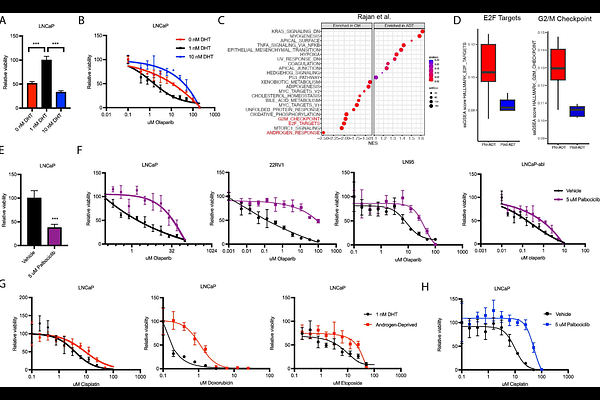Lack of synergy between AR targeted therapies and PARP inhibitors in homologous recombination-proficient prostate cancer

Lack of synergy between AR targeted therapies and PARP inhibitors in homologous recombination-proficient prostate cancer
Traphagen, N. A.; Wheeler, E.; Li, R.; Lu, F.; Ahmed, B.; Tewari, A. K.; Balk, S. P.; Nelson, P. S.; Corey, E.; Long, H.; D'Andrea, A. D.; Qiu, X.; Brown, M.
AbstractRecent clinical trials have explored the combination of androgen receptor (AR) pathway inhibitors and poly (ADP-ribose) polymerase (PARP) inhibitors as a potential treatment for castration-resistant prostate cancer. This combination treatment is based on the premise that AR directly regulates expression of DNA repair genes, leading to synergy between PARP and AR inhibition. Despite some promising preclinical evidence, this combination therapy has shown limited efficacy in patients with homologous recombination (HR)-proficient tumors. To investigate this discrepancy between preclinical and clinical results, we profiled the effects of PARP inhibition in prostate cancer models in the presence or absence of AR inhibition. Surprisingly, AR inhibition impaired response to PARP inhibitors in castration-sensitive cells and had no effect on response in castration-resistant cells. AR inhibition also did not regulate DNA repair in either the castration-resistant or castration-sensitive setting. Instead, we find that cell cycle progression is required for response to PARP inhibition in homologous-recombination proficient prostate cancer.